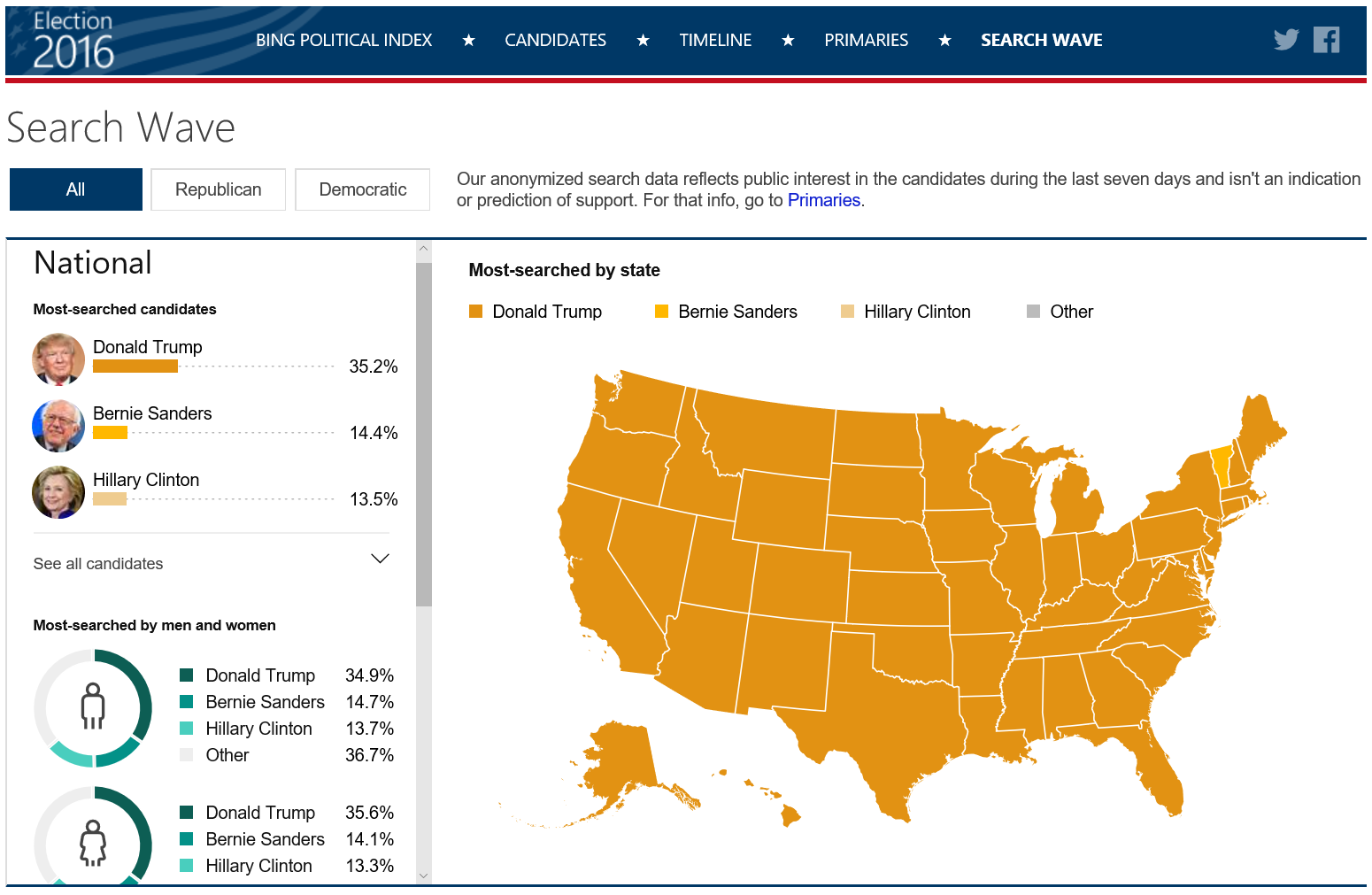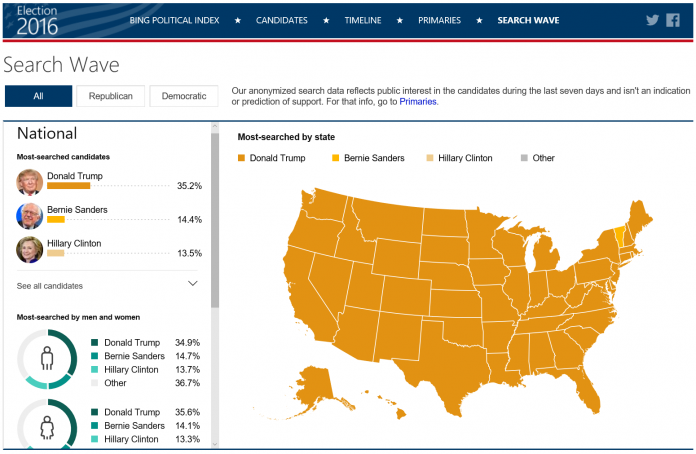Microsoft has announced it has added a feature to its Bing search engine that will allow users to obtain detailed search data on any remaining presidential candidate in the 2016 United States election.
The feature — called Search Wave — was introduced on Feb. 29, the eve of the 11 “Super Tuesday” party primary and caucus elections that are viewed as pivotal toward deciding the party nominations.
Search Wave breaks down searches for individual candidates by state, age and gender, allowing a view at how the candidates stack up against one another. Search Wave also allows users to filter searches by party and state-by-state.
Said Microsoft on its Bing Blog:
“You may follow all the reports about where the candidates stand through polls, interviews and rallies, but if you want to get an even closer look at how the contenders are capturing the attention of the nation, try Search Wave. Powered by Bing Predicts, Search Wave is a window into public search interest for each candidate.”

Microsoft said that Search Wave does not collect any personal data from users. Microsoft also said that Search Wave measures only volume of searches — not sentiment — meaning that a presidential candidate being controversial counts the same as being popular.
Bing Predicts Trump, Clinton to win big
The company also said that its Bing Predicts, powered by Search Wave, forecasts Republican Party front-runner Donald Trump to win 1o of the 11 primaries and caucuses on Super Tuesday — Alabama, Alaska, Arkansas, Georgia, Massachusetts, Minnesota, Oklahoma, Tennessee, Vermont and Virginia. Texas Senator Ted Cruz is projected to win his home state.
For the Democrats, Bing Predicts projects former First Lady, New York Senator and Secretary of State Hillary Clinton will also win 10 of 11 states (Alabama, Arkansas, Colorado, Georgia, Massachusetts, Minnesota, Oklahoma, Tennessee, Texas and Virginia), with Vermont Senator Bernie Sanders winning his home state.
“To create these predictions, our machine-learned predictive models use data from polls, prediction markets, and anonymized and aggregated search-engine queries plus social-media posts to prognosticate the winners of the Republican and Democratic nominations in each state.”
SOURCE: Bing Blog






